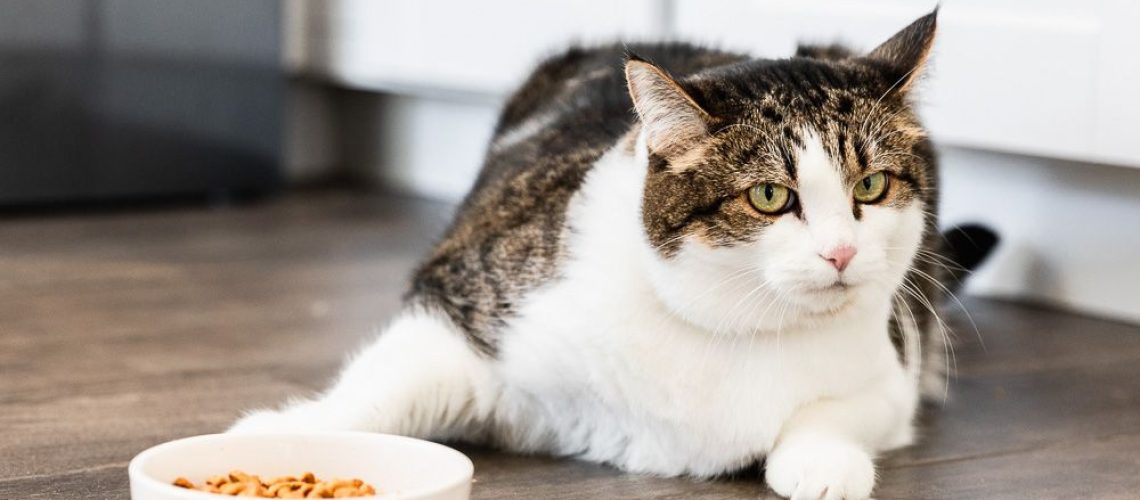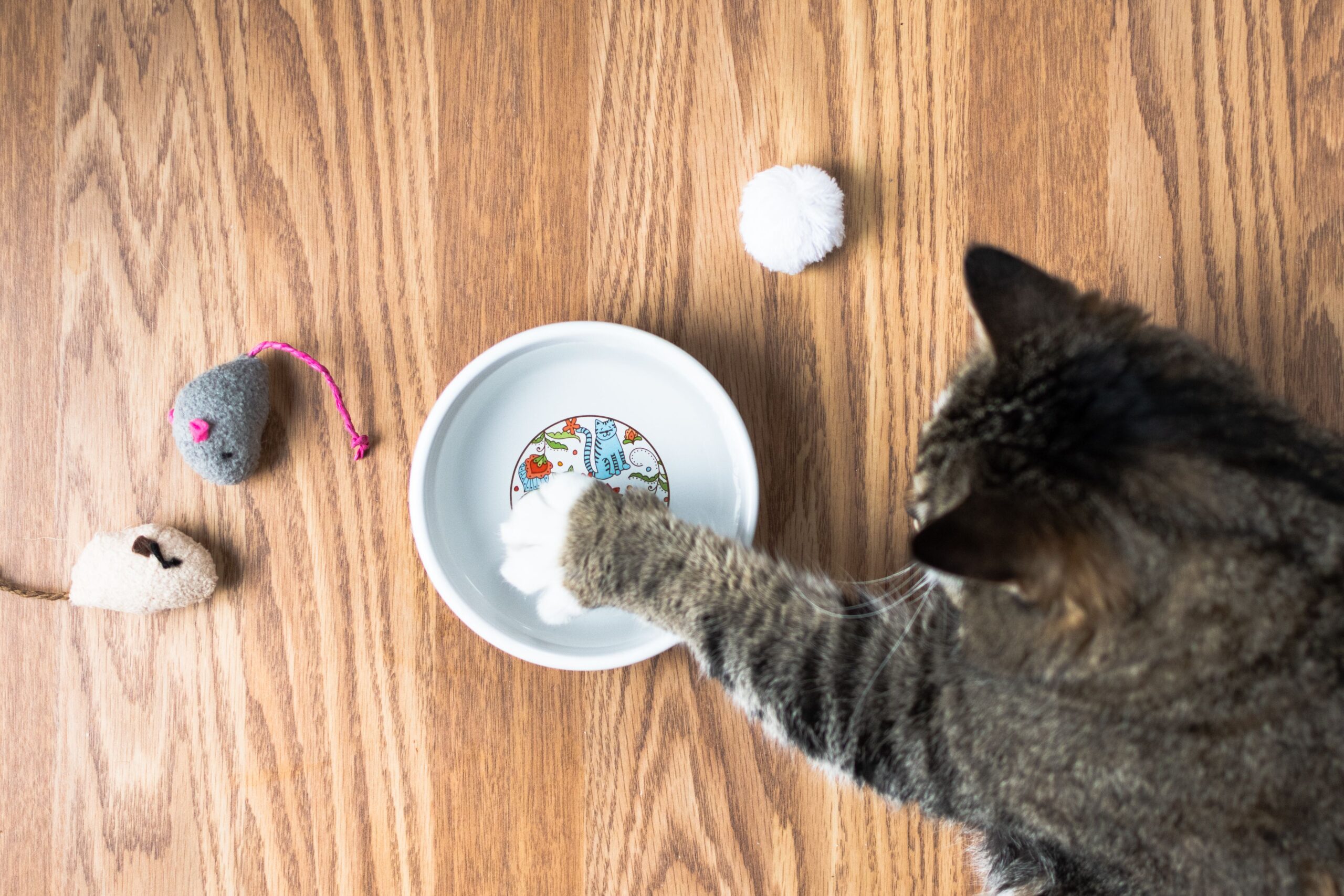Are you worried about your furry feline friend? Is your cat turning up their nose at their once beloved bowl of kibble? Well, you're not alone. The big question on every pet owner's mind is: why isn't my cat eating? Understanding this topic is crucial because a healthy appetite is a sign of a happy and thriving cat. But fear not, we're here to delve into the fascinating world of feline behavior and uncover the reasons behind their finicky appetites. So grab your detective hat and let's unravel this mystery together!
Key Takeaways:
- Loss of appetite in cats can be caused by various factors such as illness, stress, or changes in the environment.
- If your cat refuses to eat for more than 24 hours, it is important to consult a veterinarian as it may indicate an underlying health issue.
- Offering a variety of high-quality and palatable food options can help stimulate your cat's appetite.
- Creating a calm and stress-free eating environment can encourage your cat to eat.
- Regular veterinary check-ups and monitoring your cat's eating habits are essential for maintaining their overall health and well-being.
Why won't my cat eat its food?
It can be concerning when your beloved feline friend refuses to eat its food. There could be several reasons why your cat is not interested in its meals. One possibility is that the food you are offering does not appeal to your cat's taste buds. Cats can be picky eaters and may prefer certain flavors or textures over others.
Another reason for a loss of appetite could be an underlying health issue. Cats can experience dental problems, digestive issues, or infections that make it uncomfortable for them to eat. It is important to monitor your cat's behavior and look out for any signs of illness or discomfort.
Possible reasons for my cat's loss of appetite
- The food does not appeal to your cat's taste
- An underlying health issue
How long has my cat been refusing to eat?
If your cat has only recently started refusing its food, it may just be going through a temporary phase. Cats can have off days where they are less interested in eating. However, if your cat has been consistently refusing to eat for more than 24 hours, it is a cause for concern.
A prolonged loss of appetite can lead to weight loss and other health problems in cats. It is important to keep track of how long your cat has been refusing food and take appropriate action if necessary.
Any changes in my cat's behavior or health that might explain its decreased appetite?
Monitor your cat closely for any changes in behavior or health that could explain its decreased appetite. Look out for signs such as lethargy, vomiting, diarrhea, excessive thirst, or frequent urination. These symptoms could indicate an underlying medical condition that requires veterinary attention.
Could stress or anxiety be causing my cat to lose interest in food?
Cats can be sensitive creatures, and stress or anxiety can affect their appetite. Changes in the environment, such as moving to a new home or the introduction of a new pet, can cause your cat to feel stressed and lose interest in food.
It is important to create a calm and comfortable environment for your cat. Provide hiding spots, vertical spaces, and interactive toys to help alleviate any stress or anxiety. If your cat's loss of appetite persists despite these measures, it is best to consult with a veterinarian.
Any recent changes to my cat's diet or feeding routine?
If you have recently changed your cat's diet or feeding routine, it could be a reason for its loss of appetite. Cats are creatures of habit and may take some time to adjust to changes in their food. It is recommended to introduce new foods gradually and stick to a consistent feeding schedule.
If you suspect that the change in diet or feeding routine is causing your cat's decreased appetite, you can try going back to its previous food or slowly transitioning it to the new one. However, if your cat continues to refuse food even after reverting back or making gradual changes, it is advisable to seek veterinary advice.
Should I be worried if my cat skips a meal or two?
A healthy adult cat can typically go without eating for a day without significant harm. Cats have evolved as hunters who sometimes experience periods of fasting in the wild. However, if your cat consistently skips meals or shows other signs of illness along with loss of appetite, it is important not to ignore the situation.
If your cat refuses food for more than 24 hours, becomes lethargic, vomits repeatedly, or shows other concerning symptoms, it is best to consult with a veterinarian. They can help determine the underlying cause and provide appropriate treatment.
Tips to encourage my cat to eat again at home
- Try offering a variety of flavors and textures in your cat's food.
- Warm up the food slightly to enhance its aroma.
- Offer small, frequent meals throughout the day instead of one large meal.
- Provide a quiet and comfortable eating area for your cat.
- Consider using interactive feeding toys or puzzles to make mealtime more engaging for your cat.
When should I talk to a vet about my cat's lack of appetite?
If your cat's loss of appetite persists for more than a day or if it is accompanied by other concerning symptoms, it is recommended to seek veterinary advice. A veterinarian can conduct a thorough examination, run necessary tests, and provide appropriate treatment options based on the underlying cause of your cat's decreased appetite.
Early intervention can help prevent further health complications and ensure that your beloved feline friend receives the care it needs. Trust your instincts as a pet owner, and if you have any concerns about your cat's well-being, do not hesitate to reach out to a professional for guidance.
Any recent changes to my cat's diet or feeding routine?
Importance of a Consistent Diet
A consistent and balanced diet is crucial for the overall health and well-being of your cat. Any recent changes to your cat's diet or feeding routine can have an impact on their appetite. Cats are creatures of habit, and sudden changes in their food can cause them to become picky eaters or even refuse to eat altogether. It is important to introduce any new food gradually, mixing it with their old food over a period of several days. This will allow your cat to adjust to the new taste and texture without causing digestive upset.
Possible Changes in Food Type
If you have recently switched your cat's food brand or type, this could be a reason for their decreased appetite. Cats can be quite particular about their food preferences, so it is essential to choose a high-quality cat food that meets their nutritional needs and suits their taste. Some cats may prefer wet food over dry kibble, while others may have specific dietary requirements due to age or health conditions. Consulting with your veterinarian can help you determine the best diet for your cat and address any concerns about their appetite.
Tips for Transitioning Cat Food
- Gradually introduce new food by mixing it with the old food in increasing proportions.
- Monitor your cat's response during the transition period, ensuring they are not experiencing any digestive issues.
- Offer small, frequent meals throughout the day rather than leaving out large portions at once.
- Provide fresh water at all times to keep your cat hydrated.
- Avoid giving too many treats or table scraps as they can disrupt your cat's appetite.
Remember that each cat is unique, and what works for one may not work for another. If you continue to notice a lack of appetite despite these adjustments, it may be time to consult with a veterinarian.
Should I be worried if my cat skips a meal or two?
Understanding Normal Eating Patterns
It is not uncommon for cats to skip a meal or two occasionally. Cats have different eating patterns compared to humans, and they are known to be intermittent eaters. They may prefer to eat smaller portions throughout the day rather than having set mealtimes like we do. However, if your cat consistently refuses to eat for more than 24 hours or shows other signs of illness, it is important to pay attention and take action.
Possible Reasons for Skipping Meals
There can be various reasons why your cat might skip a meal. It could be due to stress, changes in their environment, recent vaccinations, or even minor digestive issues. Sometimes, cats simply become bored with their food and may need some variety in their diet. However, if your cat's lack of appetite persists for more than a couple of days or is accompanied by other concerning symptoms such as vomiting or lethargy, it is crucial to seek veterinary advice.
When to Seek Veterinary Attention
- If your cat refuses food for more than 24 hours.
- If there are additional signs of illness such as weight loss, diarrhea, or excessive thirst.
- If your cat shows any behavior changes like hiding, aggression, or excessive grooming.
- If you suspect that your cat has ingested something toxic or foreign.
Remember that as a pet owner, you know your cat best. Trust your instincts and don't hesitate to reach out to a veterinarian when in doubt about your cat's health.
Tips to encourage my cat to eat again at home
Create an Appealing Feeding Environment
Sometimes all it takes is making mealtimes more enticing for your cat. Ensure that your cat's feeding area is clean, quiet, and away from any distractions. Cats prefer privacy while eating, so find a secluded spot where they can enjoy their meal without interruptions. Additionally, using shallow dishes or puzzle feeders can make eating more engaging and stimulating for your cat.
Offer Tempting Food Options
If your cat is being picky with their food, you can try offering different flavors or textures to pique their interest. Some cats may prefer wet food over dry kibble or vice versa. Experiment with various high-quality cat foods to find what your cat enjoys the most. You can also try warming up the food slightly or adding a small amount of tuna juice to enhance its aroma and appeal.
Additional Tips to Encourage Eating
- Stick to a consistent feeding schedule to establish routine.
- Avoid leaving food out all day as it can become stale and unappetizing.
- Gently hand-feed your cat or use interactive toys during mealtime to create positive associations.
- Ensure that the food is at an appropriate temperature, neither too hot nor too cold.
- Consult with a veterinarian for appetite-stimulating medications if necessary.
Remember that patience is key when trying to encourage your cat to eat again. It may take some time and experimentation before finding the right approach that works for your feline companion.
When should I talk to a vet about my cat's lack of appetite?
Recognizing Signs of Concern
While occasional loss of appetite in cats may not be alarming, persistent lack of interest in food can indicate an underlying health issue. It is important to monitor your cat closely and look for additional signs that may warrant veterinary attention.
Potential Health Issues
There are several medical conditions that can cause a decreased appetite in cats. These include dental problems, gastrointestinal issues, kidney disease, liver problems, infections, and even certain cancers. If your cat's lack of appetite is accompanied by weight loss, vomiting, diarrhea, excessive thirst or urination, lethargy, or any other abnormal symptoms, it is crucial to consult with a veterinarian promptly.
When to Seek Veterinary Advice
- If your cat refuses food for more than 24 hours.
- If there are additional signs of illness such as weight loss, vomiting, or diarrhea.
- If your cat shows any behavior changes like hiding or aggression.
- If you notice any abnormalities in their litter box habits or urine/fecal output.
- If your gut instinct tells you that something is not right with your cat's health.
Remember that early detection and intervention can greatly improve the outcome for your cat. A veterinarian will be able to conduct a thorough examination and recommend appropriate diagnostic tests to determine the underlying cause of your cat's lack of appetite.
In conclusion, there can be various reasons why your cat isn't eating. It's important to observe their behavior, consult a veterinarian, and provide a comfortable and stress-free environment to help them regain their appetite.
Why is my cat suddenly not eating?
If a cat has something obstructing their stomach or intestines, or if they are sick due to an underlying illness or infection, they may refuse to eat. This loss of appetite could also indicate that the cat is experiencing pain or discomfort. Additionally, stress can impact a cat's desire to eat.
Why is my cat not eating but acting normal?
When a cat loses interest in food but behaves normally in other ways, it is typically because they do not enjoy the food. Whether it is a new type of food or one they have been eating for a while, they may become selective about what they consume. While this behavior is normal, it can be frustrating for cat owners.
When should I worry about my cat not eating?
If there is a clear explanation for why your cat is not eating, it is likely not a cause for concern. However, if your cat has gone more than 24 hours without eating or drinking, or if they are showing any other symptoms along with a loss of appetite, it is important to take them to the emergency veterinarian.
Do cats go through phases of not eating?
Similar to humans, cats who are under stress may temporarily lose their appetite. If you have recently gone through a major household change such as moving, losing or gaining a family member or pet, your cat may experience a decrease in food consumption while it adjusts to the changes.
What are 4 signs your cat is suffering?
Signs that a cat is in pain include a decline in interest in enjoyable activities such as playing, socializing, and exploring. They may become withdrawn and hide away. Cats may also exhibit lameness and increased sensitivity to touch in certain body areas. Additionally, there may be a decrease in overall movement and activity.
How can I stimulate my cat's appetite?
Methods to increase a cat's appetite naturally: Use enticing food options: Cats are naturally inquisitive animals and are attracted to strong scents. Attempt to entice your cat by offering small amounts of their preferred wet food or fresh tuna pieces.

















